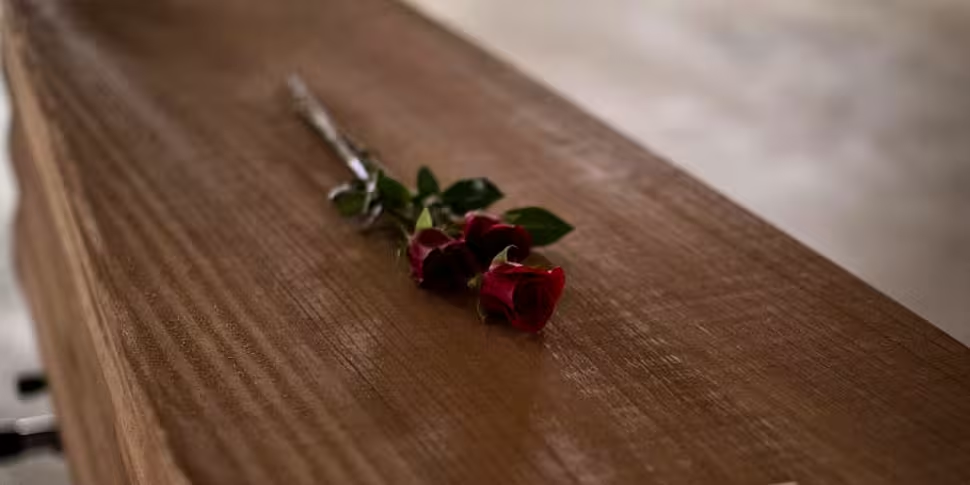The number of people allowed to attend funerals should be increased as the current limit of ten people is 'very, very small', according to the Irish Hospice Foundation.
It comes as a survey by the foundation found that 68% of respondents agreed the current pandemic has made Irish society rethink the way it deals with death and bereavement.
The group has written to the National Public Health Emergency Team (NPHET), asking them to increase the number of people allowed to attend funerals while maintaining measures on social distancing.
Currently, officials say there should not be more than 10 people in a church or at a graveside.
Sharon Foley, CEO of the Irish Hospice Foundation, told Lunchtime Live that restriction should be changed as we move into another stage of the fight against coronavirus.
Ms Foley explained: "What [officials] advise at the moment is that no more than 10 people should attend a funeral.
"Through the height of the COVID pandemic they were very concerned about social distancing and the need to minimise infection.
"We feel now that coming out of it now - we're coming to live with COVID, moreso than in the crisis phase - it's time to look at that.
"Ten is a very, very small number. It restricts grandchildren coming to funerals, any brothers and sisters... it's a very, very small number."
Ms Foley suggested there is space in many churches, religious centres and other secular spaces for more than ten people to gather while remaining socially distant.
She said: "We appreciate the challenges facing NPHET in terms of minimising the number of people.
"Equally, we really appreciate the sacrifices people have taken around bereavement at the moment - remember for all those statistics is a family that has been bereaved.
"There's only one chance to get end-of-life care right, so we feel there's more that can be done as we move into the next phase to look at those restrictions."
She observed that Irish people have shown "great imagination" in terms of expressing their condolences to the families and friends of those who have died - highlighting the examples of people coming out to their gates or standing along local streets to pay their respects as funeral processions pass.
However, she encouraged people to 'keep the connection going' with the bereaved person beyond the funeral itself.
She said: "It's about showing the humanity and the love for the person.
"Most of our grief support comes from our friends and community. We're also saying to Government that there has to be an overall look at how we plan for bereavement, because are there enough supports there?"









